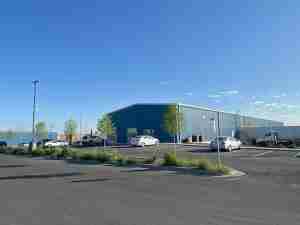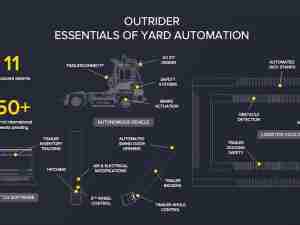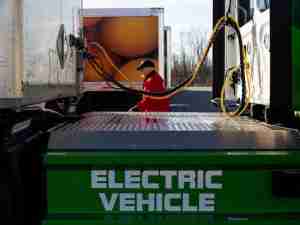South Korea ordered striking cement truck drivers back to work in a dramatic step it said was necessary as the stoppage poses a threat to the nation’s economy.
The government issued the order during a cabinet meeting Tuesday led by President Yoon Suk Yeol, and warned that violators will face legal action. This is the first time such a decree has been put in place on drivers since it was enacted under the Trucking Transport Business Act in 2004.
“I will firmly establish the rule of law between labor and management during my term,” Yoon said during the meeting. “I will never compromise with illegality, and the responsibility for illegal activities will be held strictly until the end.”
The union said in a statement Monday its members have no plans to comply if such an order was given, and has asked the International Labor Organization to intervene to prevent “gross violations of workers’ rights, on behalf of truck drivers involved in legitimate strike action.”
Strike Impact
The strike has virtually suspended manufacturing and delivery of steel, cement and petroleum products. The order for now is limited to truckers in the cement industry, as that sector has been hit hardest. Cement deliveries are down more than 90%, halting work at construction sites, Finance Minister Choo Kyung-ho said in a briefing.
The unionized truck drivers began their strike on Nov. 24, the second major walkout this year, demanding the government extend and expand a wage system guaranteeing minimum freight rates, citing surging fuel costs. Talks between the union and transport ministry are scheduled to resume Wednesday after the two sides failed to reach an agreement Monday.
The protests are the latest instance of labor actions across the world threatening to upend economies and global trade. Supply-chain workers are showing growing discontent from California to Bangladesh as food and energy costs soar following Russia’s invasion of Ukraine.
The Biden administration is moving to prevent a looming shutdown of the nation’s rail workers that could create major supply-chain disruptions just before Christmas. South Korea may also face further turmoil amid widespread strikes in public transportation and other services across the country.
Economic Stress
The truckers strike is putting pressure on President Yoon as he tries to keep the country’s economy on track amid rising energy prices and a slowdown in exports. The Bank of Korea opted for a small rise in interest rates last week as it seeks to minimize pressure on the economy while keeping inflation in check.
The order to force drivers to resume work shows the government is taking a stern stance following a similar labor action in June. Those who defy the return-to-work order can be punished by up to three years in prison or a fine of as much as 30 million won ($22,400).
“If we don’t respond sternly to illegal collective actions in accordance with the law and principles and neglect people’s livelihoods, logistics and industries, we won’t be able to recover from economic crisis and there will be no future for South Korea,” Finance Minister Choo said.
Yet some observers say the action could backfire.
“Ordering the workers back to work won’t resolve the issue and will cause anger to fester unless the government offers something concrete in return,” said Michael Quinlan, emeritus professor at the University of New South Wales’ school of management and governance.








